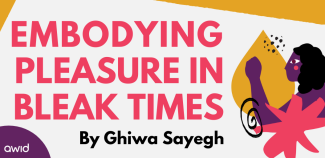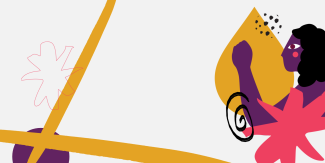
We wake up to worlds that are unbearable to watch and live in. In Lebanon, the only home I have known, it is said that an elderly person died while queuing for fuel. A year passes since the explosion of August 4. Internet, electricity, bread, medication are scarce resources. Living becomes scarce. We live different realities fraught by macro and micro systems of injustice, some more devastating than others, because of historical and contemporary inequalities of access. But this scarcity of life is not exceptional to one place or geography. It is symptomatic of a world order where so many of us are resisting impoverishment, exploitation, and oppression. In this world order, our homes become news only to fade away from headlines and screens. In this world order, we are forced to come up with strategies to survive what we are told is the only reality possible. In this world order, organizing, mobilizing, and agitating require us to never settle on one praxis or method.
We are also told we are living in times of “crisis.” The COVID-19 pandemic continues to change the landscape of work, mobility, health, and collectivity by exposing the monstrosity of the systems that rule us. We have occupied the land, sea, and air, and exploited them beyond repair. By fighting murderous regimes, we as feminists discover the extent of their grasp over all the infrastructures that make life livable. If crisis is ordinary (to borrow from Lauren Berlant), we need to resist the cooptation of our collective resistance. This resistance comes at a great cost: more than ever before, we are isolated and dispersed, in our bodies, our struggles, our geographies. In the absence of physically embodied meeting spaces, we occupied the online spheres with our circles and togethernesses. An online space becomes a transnational gathering made bodily. It is a Southern feminist exploration to come together in this way, despite crumbling infrastructures and unreliable access to the internet. It makes it possible to imagine – and embody – how to break free from the borders (physical, sexual, global, geographical) to which we are assigned. By not holding each other back, by embracing contradictions and situated differences in collectivity, we can practice solidarity as transformative.
When our spaces of organizing migrate to the online and the transnational, creating, resisting, and transforming are circles we move in and out of. This motion, this ability to “be” differently is a praxis. If it seems imposed by global circumstances, it is what feminists, especially across the South, have often utilized, so that other worlds, other realities, continue to become tangible and real. Imagining worlds as feminist realities, then striving towards our collective vision, is a form of action and doing.
AWID’s Feminist Festival follows echoing genealogies. Coming to life online and spread out across larger chunks of time, the (re)structure of the festival itself is an act of creation, resistance, and transformation. Time is slowed and extended; there is space for joy and pleasure (without them being a requirement) despite the bleakness of our times.
What does it mean to talk about sexuality, collectively, politically, in online spaces? Aside from embodying sexuality as something that moves us, that we dream, say, or enact, we also navigate virtual spaces with our bodies and affects. Online spaces, just like utopias, do not exist in a vacuum. To come to them, with all the shapes this coming-to can take, is to be embodied in/by them. While they might be virtual, it does not make them less real. Talking about pleasure is also a conversation about prison and police abolition, about banks and debt and scarcity, about reduced access and mobility online and offline. Take for instance OnlyFans’ latest ban on porn: after taking large commissions from sex workers for years, and making a name for itself thanks to their labor, the platform is selling to the oppressive requirements of online payment and banking institutions. Talking about pleasure, then, shows us the way to deviate from the use of the master’s tools (to borrow from Sara Ahmed and Audre Lorde), such as the digital infrastructures we occupy and spread in. And therefore, our sexualities in online spaces and in making worlds can only ever be sites of struggle and co-creation of possible realities.
The embodiment of our sexualities across borders disrupts a world order that continues to manifest itself in border controls, settler colonialism, and capitalist realism. It is no wonder, then, that our sexualities are devalued, deprioritized, tamed, or even criminalized and incarcerated. Let us continue to unleash their transformative power, and to disperse, not in isolation, but in pleasure, joy, and togetherness across spaces.
